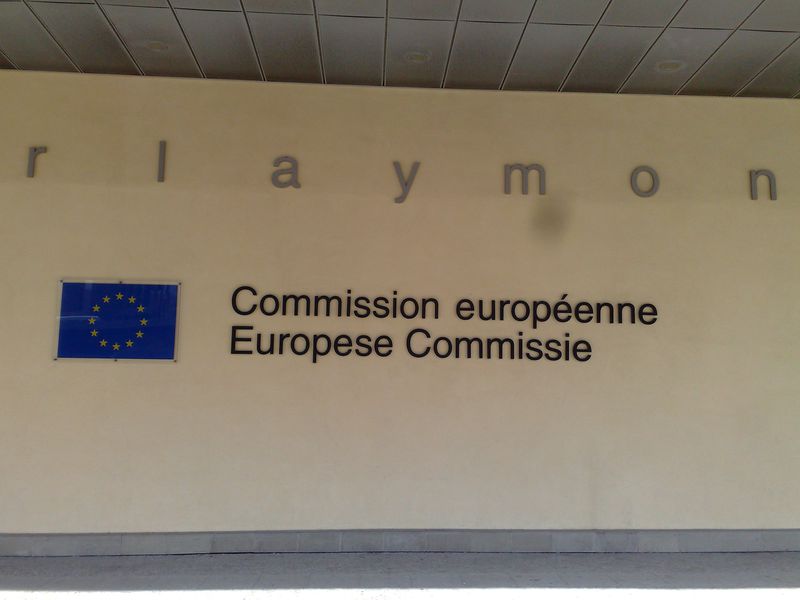IME for Bulgarian government measures: insufficient cost cut, insanity on the labor market
Ralitsa Kovacheva, April 5, 2010
 The government’s crisis measures are not tailored to fit in the budget hole and cannot not fill it, according to the economists from the Institute for Market Economy. In their analysis of the 60 measures they commented that they are much broader than expected. In this sense the document “lost its focus on the budget, thus preventing the proposed measures from bringing the expected effect of about 1.6 billion levs additional income.”
The government’s crisis measures are not tailored to fit in the budget hole and cannot not fill it, according to the economists from the Institute for Market Economy. In their analysis of the 60 measures they commented that they are much broader than expected. In this sense the document “lost its focus on the budget, thus preventing the proposed measures from bringing the expected effect of about 1.6 billion levs additional income.”
According to the annalists, there is one leading anti-crisis and budgetary measure: 10% reduction of administrative expenditure. The government’s plans are that this would save 450 million levs (230 million euro) of the budget which is almost one third of the needed result. The question is where the rest of the money up to 1.6 billion levs (0.82 million euro) would come from.
The economists noted the aim of collecting half a billion levs from CO2 emissions sales as quite conditional. The other main source of revenues - privatization, even if it could contribute to the revenues that are needed, “it would be recorded in a footnote in the budget, i.e. as financing the deficit, not as budget revenue”.
The assessment of IME for the fiscal measures is positive in general, except for some completely unclear ones as: "Collection of additional internal and external financial resources in support of the fiscal reserve”. The analysts gave a negative assessment for: “Silver Fund investment regime liberalization which allows investing in low risk Bulgarian financial instruments.” According to the analysts this measure will not help the budget deficit, but rather poses a serious risk to it.
There is a critical attitude towards measures that allow different treatment of some social or business groups. For example, the change in the way of taxation of insurance premiums has been criticized by economists, arguing that "the insurance business is a business like any other and should be levied on its profits. Any other "balancing tricks,” show tendentious respect and a searching of victims.”
With regard to the so called luxury tax ("Doubling the tax for housing estimated to cost more than 300, 000 levs (153,000 euro) and the tax on cars with an insurance value of over 70 thousand (35,000 euro), tripling the tax on personal yachts and airplanes"), IME's position is clear:
“We have always defended the idea of tax equity, because the higher tax base anyway supposes higher absolute tax amount. Most likely local taxes collection would drop additionally and the final effect could be negative. Collecting additional tax on yachts and planes would be close to zero because these "luxury goods" can easily be registered in countries with more favourable taxation regime. A pure populist measure.”
Entirely positive is the assessment of the measures that lead to public spending cuts - as mentioned above, according to the analysts, this is the leading and the most important measure. Except the decision for “additional subsidy for the Ministry of Labour and Social Policy for activities of social assistance from the state budget”, arguing that “it is an enormous resource that would neutralize the effect of many of the positive measures.”
There is a 100 % support for the measures aimed at restoring state fiscal discipline, because they are related to the axioms - that contracts and deadlines must be respected.
The economists from IME are firmly against the increase of the capital of the Bulgarian Development Bank. This assessment is a logical consequence of IME's general position against the very existence of BDB and the controversial need of it: “The bank is not guided by market principles, politics is being involved which is worrying … One growing state bank hides many risks, not for the clients but for the taxpayers.”
Entirely negative is the assessment of the measures aimed at the labour market and those in support of the households. The liberal economists are consecutive and downright opponents of the trade union's dream of increasing minimal salary, which is about to be achieved by the crisis plan of the cabinet. But according to the Institute this would have the opposite effect, because it would lead to higher unemployment and increase grey economy. Removing the limit of compensations would reduce the stimulus for finding jobs and would lead to enormous budget spending, which will be paid by the people who are still working.
According to the economists, “one of the worst measures in the whole plan” is giving the Minister of Labour and Social Affairs more rights to dictate conditions to the private businesses in terms of salaries, working time etc. The sector organizations, that are monopolistic and quasi-state, should be completely removed, rather than get more power.
The good news is, that for now there would be no rising of basic taxes, but balancing the budget would require additional spending cut. According to the analysts, administration cuts are extremely necessary but insufficient to balance the budget. And the measures on labor market are defined like “insanity”.
“These are the measures expected to balance the budget, but they may be insufficient. Higher VAT is not a good idea; it has not been accepted by the society and may drop out. This means that the budget hole may not be filled in without spending more on extra related measures. The state should seriously reduce its expenditure. Everything else is secondary.”
The conclusion, according to IME: the budget is under a very serious treat!
 | © euinside
| © euinside | © euinside
| © euinside | © euinside
| © euinside